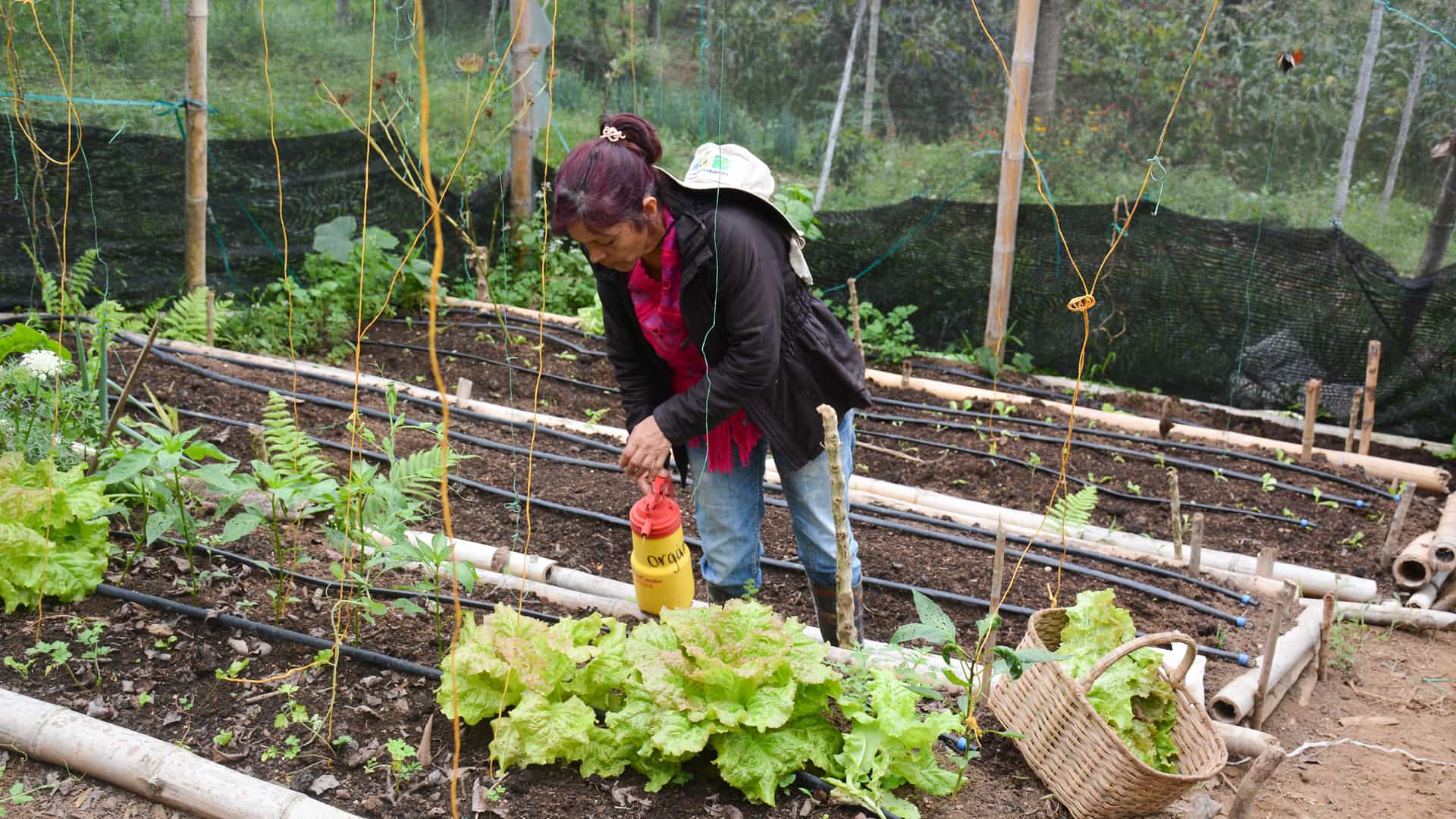
Acting against the effects of climate change is an urgent task. Smallholder farmers, who provide food for the world, are one of the populations most vulnerable to climate variability, so building resilience in rural communities is about ensuring a sustainable future for our food systems.
Humanity has set ambitious goals for transforming food systems in a context of climate change; these goals must be connected to innovative financing approaches that enable rapid transformation to achieve them. The CGIAR Research Program on Climate Change, Agriculture and Food Security (CCAFS) has developed science-based methods and tools to inform investments, policies and business models that support unlocking climate finance for adaptation.
According to the United Nations (UN) there is a large gap in climate finance. A decade ago, it was established that by 2020, $100 billion would be raised annually to support climate action in developing countries. Unfortunately, this goal has not been met yet.
Another important fact was provided by Carin Smaller, Director, Agriculture, Trade & Investment, at the International Institute for Sustainable Development (IISD), at the policy seminar “Financing food systems transformation” organized by International Food Policy Research Institute (IFPRI) in which she indicated that an additional $33 trillion is needed until 2030 to eradicate hunger, increase the incomes of small producers, while maintaining the reduction of greenhouse gases settled in the Paris Agreement.
This is one of the reasons why organizations like the CGIAR through research programs as CCAFS want to mobilize capital flows towards sustainable investments that transform food systems through science and innovation. In that sense, we have developed, tested, and evaluated climate-smart interventions that are ready to be scaled and provided technical assistance by matching investments to the technical knowledge to reach the last mile for climate resilience. CCAFS has also developed tools and methods to inform pipeline development and we have also enabled unusual partnerships between scientists, investors, and investees.
And to ensure availability, access and use of measurement methods to track progress towards climate smart outcomes, we have also designed and implemented cutting-edge risk assessment tools specifically tailored to investors and investees’ operations, as well as tailored-made impact monitoring and assessment tools.
Some examples of our work include the development of a technical assessment to identify main climate vulnerabilities and threats facing agricultural systems and rural smallholder farmers. This study will help the Small Farmers Adaptation Fund (SMAF) led by AddValue for investing in smallholder farmers through MFIs in seven Latin American countries for USD 30Mio.
In East Africa, together with the the Alliance of Bioversity International and CIAT we are developing an automatized risk assessment tool for manager/domestic financial institutions lending to small and medium producers and agribusinesses. This tool will help assess climate risks, production risks and natural resources risks for targeted commodities and value chains. Furthermore, to facilitate credit evaluation processes on potential clients implementing climate-smart agriculture (CSA), we are designing a CSA Credit Scoring Tool with a leading asset manager, to develop an end-to-end CSA credit scoring tool to be embedded in the Fund’s credit evaluation process.
These methods and tools are crucial to support financial institutions and investors to add their contribution to deliver climate-smart finance investments and achieve resilience goals. However, many more organizations still need to join us so that together we can support the scale of climate-smart agriculture and improve farmers’ livelihoods, diversify their incomes, and enhance adaptation to climate change through the joint work of science and action.
Deissy Martínez Baron,
Latin American Regional Leader, CGIAR Research Program on Climate Change, Agriculture and Food Security (CCAFS)
